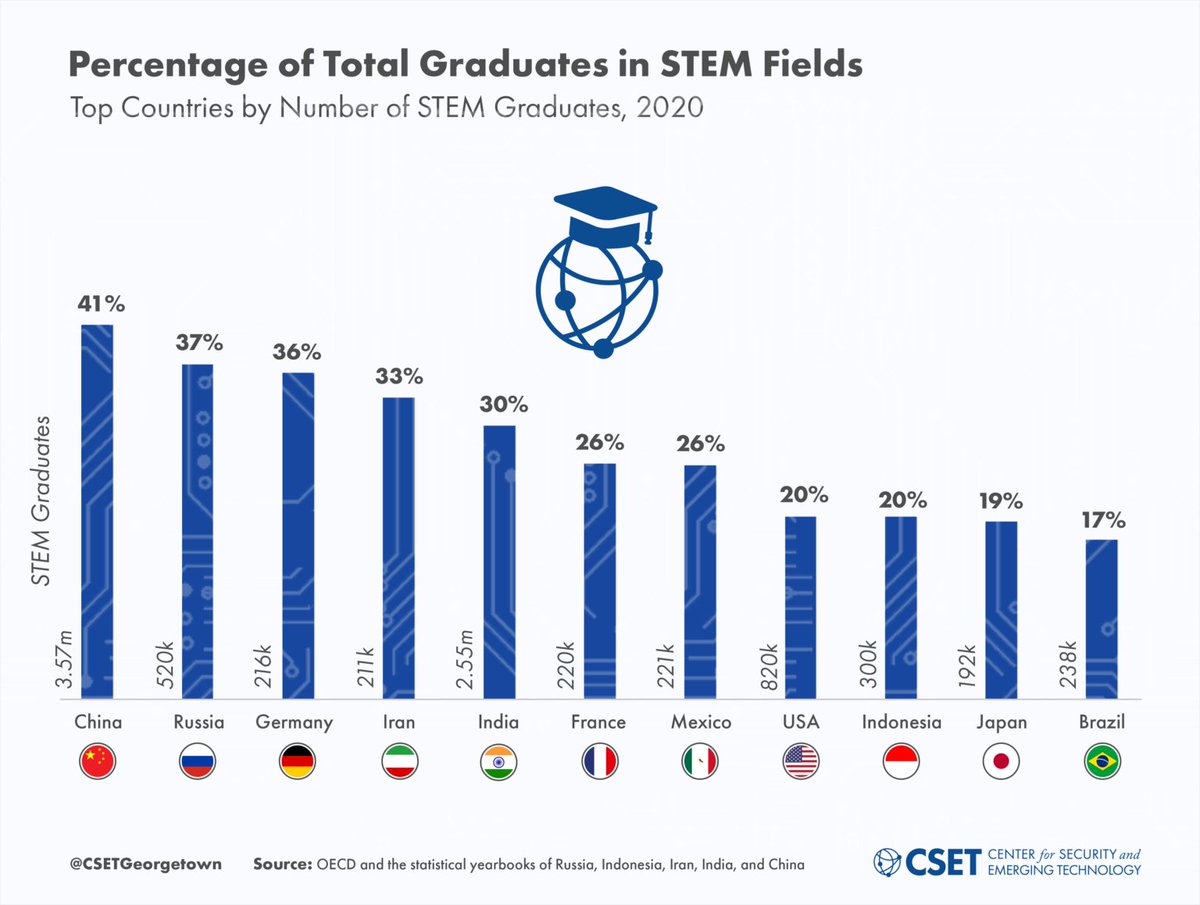
Anusar Farooqui, Founder and CEO, Systematic Portfolios LLC. Words: https://t.co/ATzak2R4A0
4 subscribers
How to get URL link on X (Twitter) App


 This is from the stunning paper by @jasonhickel et al. (2024) in Nature. They show that the Global North appropriates more three-quarters of a trillion hours of work from the Global South every year. 👀 2/
This is from the stunning paper by @jasonhickel et al. (2024) in Nature. They show that the Global North appropriates more three-quarters of a trillion hours of work from the Global South every year. 👀 2/ 

https://twitter.com/kyleichan/status/1924426280579068137It is true that competent government and strategic, long-term vision is important to China’s success. But I would suggest that this factor is secondary to the principal conditioners of Chinese success. 2/

 This remarkable fact—ignored by @michaelxpettis and @M_C_Klein despite the general argument in their own book—is also clear from NIIP. Clearly, China is NOT the counterparty amassing US assets on a net basis. 2/
This remarkable fact—ignored by @michaelxpettis and @M_C_Klein despite the general argument in their own book—is also clear from NIIP. Clearly, China is NOT the counterparty amassing US assets on a net basis. 2/ 

 The dollar was the reserve currency in the postwar period. We did not run a persistent trade deficit then. Why? Because our sectoral savings were balanced: businesses were net borrowers and hhs net savers, with the latter financing the former, gov net savings and net savings inflows (~ -NX) were trivial until 1970. 2/
The dollar was the reserve currency in the postwar period. We did not run a persistent trade deficit then. Why? Because our sectoral savings were balanced: businesses were net borrowers and hhs net savers, with the latter financing the former, gov net savings and net savings inflows (~ -NX) were trivial until 1970. 2/
https://twitter.com/policytensor/status/1916290599176605998People hold on to their pictures of the world. The most introspective revise their pictures in light of incoming data. But this is a difficult and noisy process for even the best of us. 2/

 The only episode with a sharper reversal going back all the way to 1999 was the Covid shock, when this moved in the opposite direction, perhaps bc Europe took a much bigger hit early on in the pandemic.
The only episode with a sharper reversal going back all the way to 1999 was the Covid shock, when this moved in the opposite direction, perhaps bc Europe took a much bigger hit early on in the pandemic. 

 Levels. US had much lower mortality than high income countries in 1992, nor it has much higher—even though industrial employment declined much more. 2/
Levels. US had much lower mortality than high income countries in 1992, nor it has much higher—even though industrial employment declined much more. 2/ 

https://twitter.com/policytensor/status/1911239941578727885
 (1) is shown to be wrong by inspection. The dollar has not been secularly overvalued. Far from it. 2/
(1) is shown to be wrong by inspection. The dollar has not been secularly overvalued. Far from it. 2/ 

 American firms are bestride the globe as colossi never before seen in the history of capitalism. Even Eli Lilly (#10 in the US) is bigger than any European firm. 2/
American firms are bestride the globe as colossi never before seen in the history of capitalism. Even Eli Lilly (#10 in the US) is bigger than any European firm. 2/ 
https://twitter.com/scholars_stage/status/1841647182316769682The fear in Tehran is that after the Israelis gut Hezbollah, they’ll come after Iran. War could be averted through reassurance. But … 2/

 For professionals, a two-war capability is identical to a two-power standard: it means that you have a military capability put up a fight with your two strongest adversaries (or, more strictly, the two strongest powers in the system besides ego). 2/
For professionals, a two-war capability is identical to a two-power standard: it means that you have a military capability put up a fight with your two strongest adversaries (or, more strictly, the two strongest powers in the system besides ego). 2/

 Shockingly, most of the links are neither with China nor Canada/Mexico. Rather, the largest number of value chains links for the US are with Britain! Canada is #2 and China #9. 2/
Shockingly, most of the links are neither with China nor Canada/Mexico. Rather, the largest number of value chains links for the US are with Britain! Canada is #2 and China #9. 2/ 



 (2) Five times as many Americans as Russians are overdosing on opioids? 3/
(2) Five times as many Americans as Russians are overdosing on opioids? 3/ 
https://twitter.com/jamescrabtree/status/1750262799345778972The entire Paul Kennedy framing is a

https://twitter.com/policytensor/status/1671145072291610625Todd raises the question of why Russia has been able to match the combined defense-industrial output of the West in the Ukraine war. He points out that Russia's GDP is 3.3% of the core geopolitical West. So, how come we can't outproduce the Russians? 2/


https://twitter.com/policytensor/status/1711956336089378852
 “In 2019, only 54 percent of high school graduates were married, compared to 60 percent of those holding an associate degree, 64 percent of those holding a college diploma, and 71 percent of those with a master’s degree.”
“In 2019, only 54 percent of high school graduates were married, compared to 60 percent of those holding an associate degree, 64 percent of those holding a college diploma, and 71 percent of those with a master’s degree.” 
 @ElbridgeColby @OrenCNN US pension funds do not have much exposure to China. Chinese equities and bonds are a small portion of institutional allocation to liquid assets and private assets. 2/ https://t.co/TGYMpNcqqmtwitter.com/i/web/status/1…
@ElbridgeColby @OrenCNN US pension funds do not have much exposure to China. Chinese equities and bonds are a small portion of institutional allocation to liquid assets and private assets. 2/ https://t.co/TGYMpNcqqmtwitter.com/i/web/status/1…